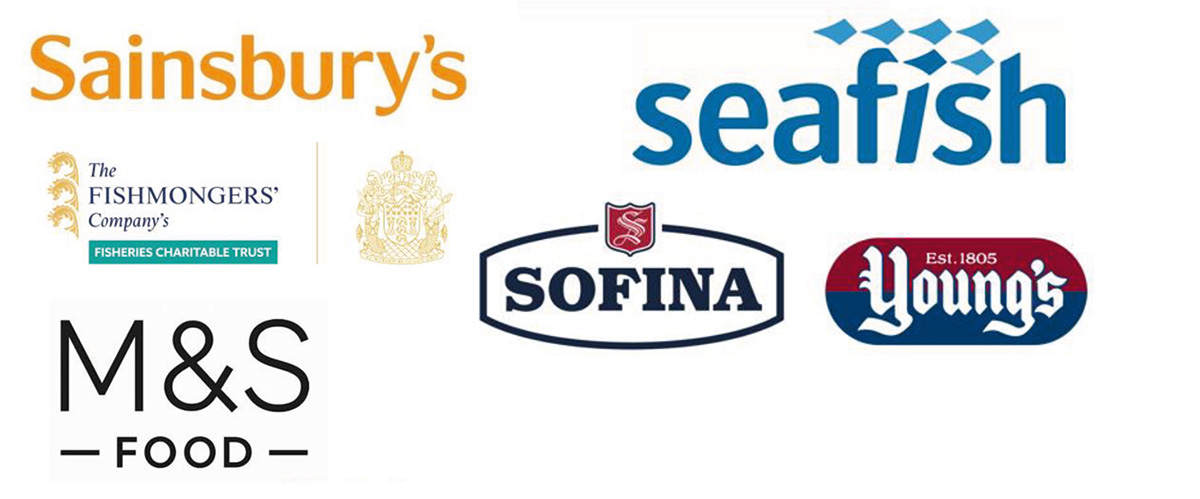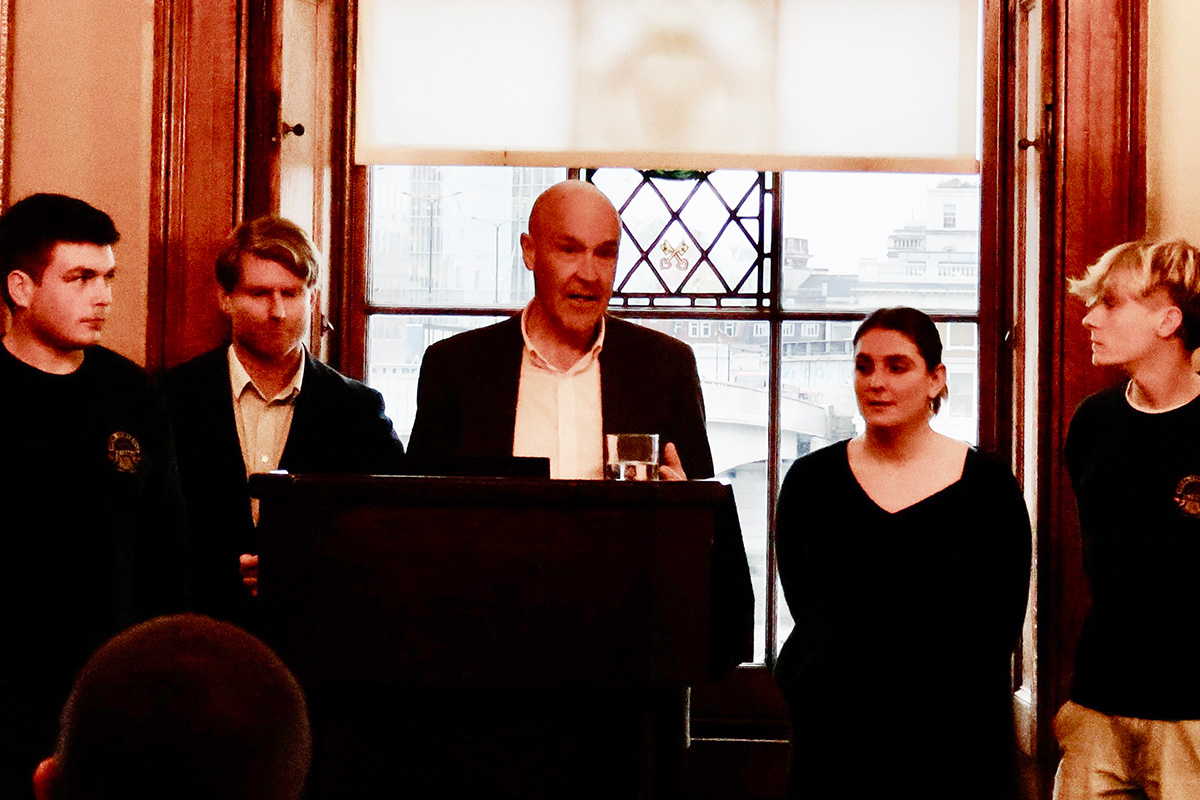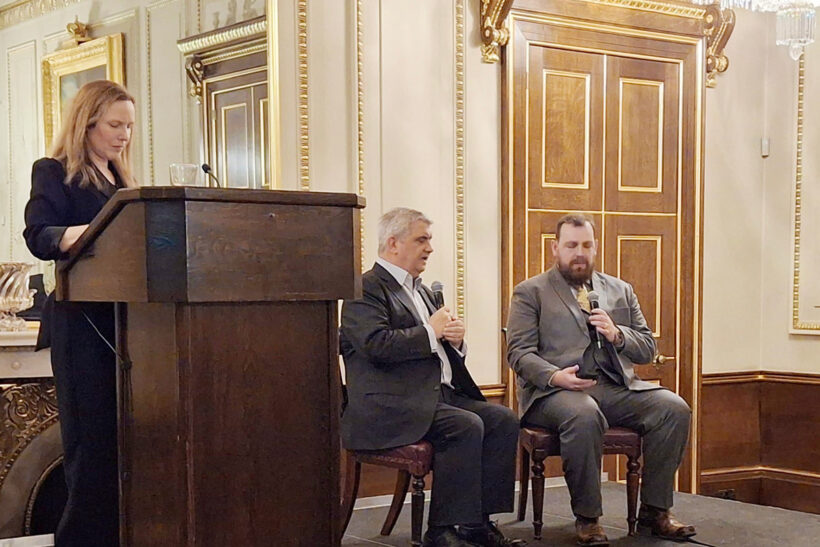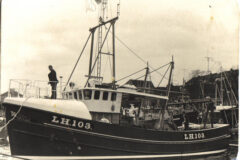The 10th anniversary of Fishing Innovation and Sustainability (FIS) sees it examine its role for the next decade – which requires input from those at the sharp end of the industry, as well as looking to other sectors and countries for inspiration

The city of London’s Fishmongers’ Hall hosted a major event recently, attended bu MPs, fishermen and representatives from across the seafood and maritime industries, to discuss how best to create an environment to support the development of innovations that could transform the UK seafood sector and ensure its future prosperity.
The Fishing Innovation and Sustainability (FIS) event followed on from the organisation’s AGM, and a stakeholder working group, where the board heard from those working at sea about their priorities for the fishing industry in the coming years and how FIS could foster the conditions needed for innovations supporting these.

Fisheries Innovation and Sustainability now works with, and supports, the fisheries and seafood sector across the UK, with funding from six key sponsors that are committed to helping industry suggestions become reality.
Welcoming the huge range of guests to the evening discussions, FIS executive director Kara Brydson said: “Innovation is not a ‘nice to have’; it is vital to the future of our industry.
“FIS is here to help create the conditions that can drive innovations that will help ensure a prosperous and successful industry. Whether this is supporting development of the Smartrawl, which is enabling fishermen to harvest only their target species, releasing everything else unharmed, or supporting the development of net-zero vessels, or improving animal or crew welfare, we are able to draw on expertise from an unprecedented coalition of industry partners.
“Innovation can be risky. FIS is here to help share that risk, and is why we are so dependent on supporting conversations about this not just across the seafood sector, but with other sectors facing, and conquering, challenges about sustainability, changing markets and changing regulations.”
A series of question and answer sessions involving both UK industry figures and non-fishing organisations highlighted the lessons that can be learned from other sectors.

Young Cornish fishermen were at the FIS event to talk about their experiences with the Young Fishermen Network, which is helping a growing number of young fishermen around the UK to connect with each other, and exchange ideas that will help their careers. Left to right: Will Greenhalgh, CFPO chief executive Chris Ranford, FIS chair John Goodlad, network organiser Matilda Phillips and Will Jaycock.
Naval architect Duncan Boag, from Macduff Ship Design, who has helped to design a new generation of prawn and whitefish vessels, as well as three concept designs for net-zero fishing vessels, interviewed David Kennedy Browne, who has led the decarbonisation programme at shipping company Maersk, to see what lessons the fishing industry could learn from its work.
“We started in 2008,” said David Kennedy Browne, “in response to rising fuel prices and the global slowdown, when we took a decision to slow our own vessels down, literally, from 25 knots to 12 knots. The Maersk fleet is responsible for 0.1% of the world’s CO2 emissions – quite a responsibility. Slowing our vessels down in this way saved an average of 140t of fuel, per ship, per day. This was not a long-term solution, but showed what we could save if we first improved efficiency of existing vessels, and then moved towards lower emissions.
“Retrofitting our existing vessels has to be a part of this. We have now completed our first retrofit of a dual-fuel engine, which involved also lengthening the vessel to take into account the extra fuel storage needed for a vessel to operate on methanol.”
Duncan Boag asked the pertinent question of how the fishing industry could follow such routes if it is left out of conversations with regulators and government – which could, for example, make a similar move impossible for fishing vessels due to licensing rules.
The message here, he was told, was to learn from what is happening in other sectors, both in the UK and internationally, to map out the future energy needs of the fishing sector, and ensure as far as possible that government plans for renewable energy take account of fishing industry needs. This was reiterated by another speaker, Bridget Hartland-Johnson of offshore wind company Ørsted, in response to a question from Cornish skipper and chair of FIS David Stevens.
Similar messages were heard about issues facing the UK’s farmers and the cold chain sector – where a review of current standards requiring a minimum temperature across the chain of -18°C was described as ‘long overdue’.
A vital lesson flagged up in these and other conversations, was about ‘fishing industry navel-gazing, and speaking in echo chambers’.
“All too often,” one speaker said, “we see the fishing industry just talking to itself, or one catching sector criticising another. This is not helping the future of the seafood industry, when these conversations need to be with those outside the industry, and where fishing sectors need to put out a united front.”
John Goodlad steps down after decade with FIS
The Fishmongers’ Hall event marked the final task for outgoing FIS chair John Goodlad, who is standing down after 10 years as chairman. He has been involved since the very start of what was then Fisheries Innovation Scotland, when the organisation was set up with funding from Young’s Seafoods to look at practical ways in which the Scottish industry could introduce or develop innovations that would reduce environmental impacts and improve seafood quality and industry working conditions.
Welcoming in new FIS chair Melanie Siggs, John Goodlad echoed previous comments about the need for the fishing industry to learn from the experiences of comparable groups, such as farmers, who attract similar public sympathy but have often used this to better effect with government.
“As an industry we tend to debate internally, to argue internally, when we need to challenge what is happening outside of the industry. FIS is here to help with that. The diversity of the FIS board of directors, which spans all sectors of the seafood industry, and the FIS stakeholder committee, involved in such a wide range of innovations, are real strengths.
“FIS does not exist in an ivory tower – the board welcomes and responds to criticism and advice, and the stakeholder committee plays a vital role with this, and has helped FIS over the last decade go from strength to strength.
“What is clear is that without innovation, we have no future.”
John Goodlad will look back over his decade chairing FIS, the key lessons he takes from his time as chair, and his thoughts for the next 10 years, in a future issue of FN.
This story was taken from the latest issue of Fishing News. For more up-to-date and in-depth reports on the UK and Irish commercial fishing sector, subscribe to Fishing News here or buy the latest single issue for just £3.50 here.
Sign up to Fishing News’ FREE e-newsletter here.





